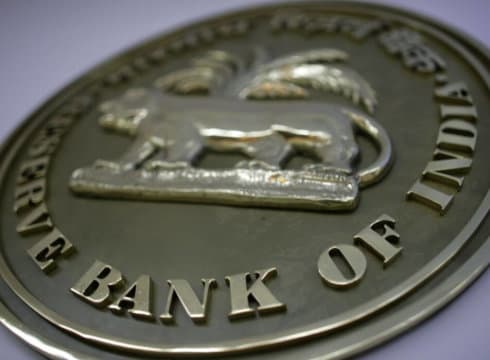Once Instituted, The Policy Could Help Minimise The Risk Of Security Breaches And Other Vulnerabilities
Inc42 Daily Brief
Stay Ahead With Daily News & Analysis on India’s Tech & Startup Economy
The Reserve Bank of India is reportedly in the process of preparing a policy on the use of cryptocurrency in the country. This comes at a time when the price of Bitcoin, one of the most popular cryptocurrencies around, has surged to $5,800, despite being banned in China and potentially even Russia.
When asked whether the government is considering legalising cryptocurrencies in India, the RBI Deputy Governor NS Vishwanathan said at a recent event in Kolkata, “I can’t comment on a policy which is still in the making.”
Last month, it was reported that the Indian government was considering a proposal to introduce its cryptocurrency similar to Bitcoins. As per undisclosed sources, the proposal was discussed by a committee of government officials, and the panel found the idea of setting up and running blockchain for financial services useful. They also added that the government might be naming its cryptocurrency ‘Lakshmi’.
A week prior to that, RBI Executive Director Sudarshan Sen had talked about the central bank’s discomfort with Bitcoin, stating, “Right now, we have a group of people who are looking at fiat cryptocurrencies. As regards to non-fiat cryptocurrencies like Bitcoins, I think we are not comfortable with them.” The remarks came in the light of intense global regulatory scrutiny over Bitcoins given the recent upheaval in them.
At the time, it was reported that the RBI was working with a group of experts to look into fiat cryptocurrency, which is basically a digital currency that could serve as an alternative to the Indian rupee.
At present, the Reserve Bank of India regards cryptocurrencies as a violation of the country’s existing foreign exchange norms. This is because the conversion of Bitcoins into foreign exchange does not currently fall under the purview of the central banking institution, making such transactions highly unsafe and vulnerable to cyber attacks.
According to a study by Cambridge University, around 2.9 Mn to 5.8 Mn people use wallets based on cryptocurrencies in the world today, chief among them is Bitcoin. Despite increased scrutiny, more than 17 Mn Bitcoins have been mined so far, raising Bitcoin-wealth worldwide to $88 Bn.
As per a 2016 Trak.in report, India currently boasts more than 50,000 Bitcoin wallets. Of these, 700-800 Bitcoins are operated daily. Over the last few years, a number of startups, such as Zebpay, Coinsecure, and Unocoin, have sprung up in the cryptocurrency space.
To be able to better regulate cryptocurrency usage in the country, the Indian government-appointed interdisciplinary committee reportedly submitted its official report in the first week of August. The committee, comprising of nine members including representatives of RBI, SBI, and NITI Aayog, was chaired by the Special Secretary in Department of Economic Affairs.
Earlier in July, the government was mulling over the implementation of Know Your Customer (KYC) norms to ensure safe transactions of cryptocurrencies. Back in June, it was reported that the Government of India might be inching closer to legalising virtual currencies.
With a proper policy in place, the RBI will likely be able to monitor the use of cryptocurrencies in the country more efficiently, thus minimising the risk of security breaches and vulnerabilities.
(The development reported by ET)
{{#name}}{{name}}{{/name}}{{^name}}-{{/name}}
{{#description}}{{description}}...{{/description}}{{^description}}-{{/description}}
Note: We at Inc42 take our ethics very seriously. More information about it can be found here.


